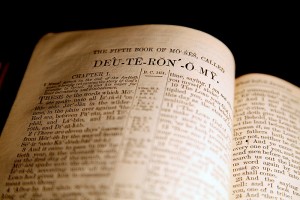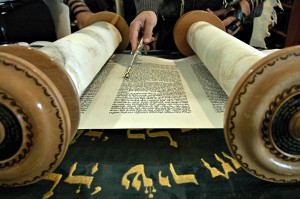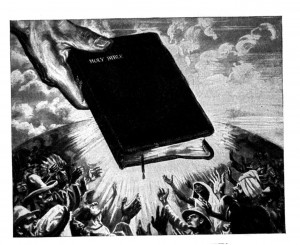More Insights About the Book of Deuteronomy
In stark terms, YHVH warns the Isaelites in Deuteronomy of the struggles Israel will have as it walks between two world: the lower world that attaches itself to man’s soul and attempts to pull him downward, and the upper world that pulls the spirit in man heavenward.
Deuteronomy presents Torah (as does Ps 119) as the way to be spiritually, physically, mentally, emotionally, materially elevated before Elohim and in the eyes of the surrounding nations (Deut 4:6).
In Deuteronomy, YHVH lays out two extremes: blessings for obedience and curses for disobedience; curse for following the ways of this world, and blessings for following the Word of YHVH. But seldom do individuals find themselves in one extreme or the other, for few are either totally worldly or totally heavenly in the orientation of their lives. They are usually caught up somewhere in the middle ground between the two: not totally evil and not totally good. Their lives are a mixed bag of good and evil, blessings and curses, and a double-orientation toward the heaven and the world. The Bible calls this double-mindedness (Jas 1:8; 4:8), and Yeshua decries such an individual (Matt 6:24, “one can’t serve both God and mammon”). The Bible also calls this being lukewarm—being neither hot nor cold, and YHVH hates this as well (Rev 3:15–16). Such an individual, if he isn’t careful, can find himself feeding spiritually more from the tree of the knowledge of good and evil rather than the tree of life.
YHVH lays out the highest spiritual ideal for Israel: to be wisdom in the sight of the nations (Duet 4:6), to be the head and not the tail, to be the greatest and not the least, and to be the lender and not the borrower. Such a position of status is possible thanks to following the Torah. He wants the best for his people, but achieving such is conditional on their obeying him. Many people make claim to believe in the God of the Bible, to love him and many even claim to follow and to obey him—just ask them! But in reality, do they? What are the fruits of their lives? Their true spiritual status is based on what they do, not what they profess with their mouths!
Deuteronomy affirms the sufficiency of Torah. The Torah is the Word of Elohim and nothing more needs to be added to it. It is the full revelation of YHVH when it says not to add to the Word of Elohim (Deut 4:2; 12:32). It is the bedrock of the Scriptures and the bedrock of truth. If Torah is the bedrock of YHVH’s word, then the Ten Commandments are the cornerstone in that foundation of truth, which Moses reiterates in Deuteronomy five. The rest of the Scriptures are just commentary or elucidations on Torah, or Continue reading





